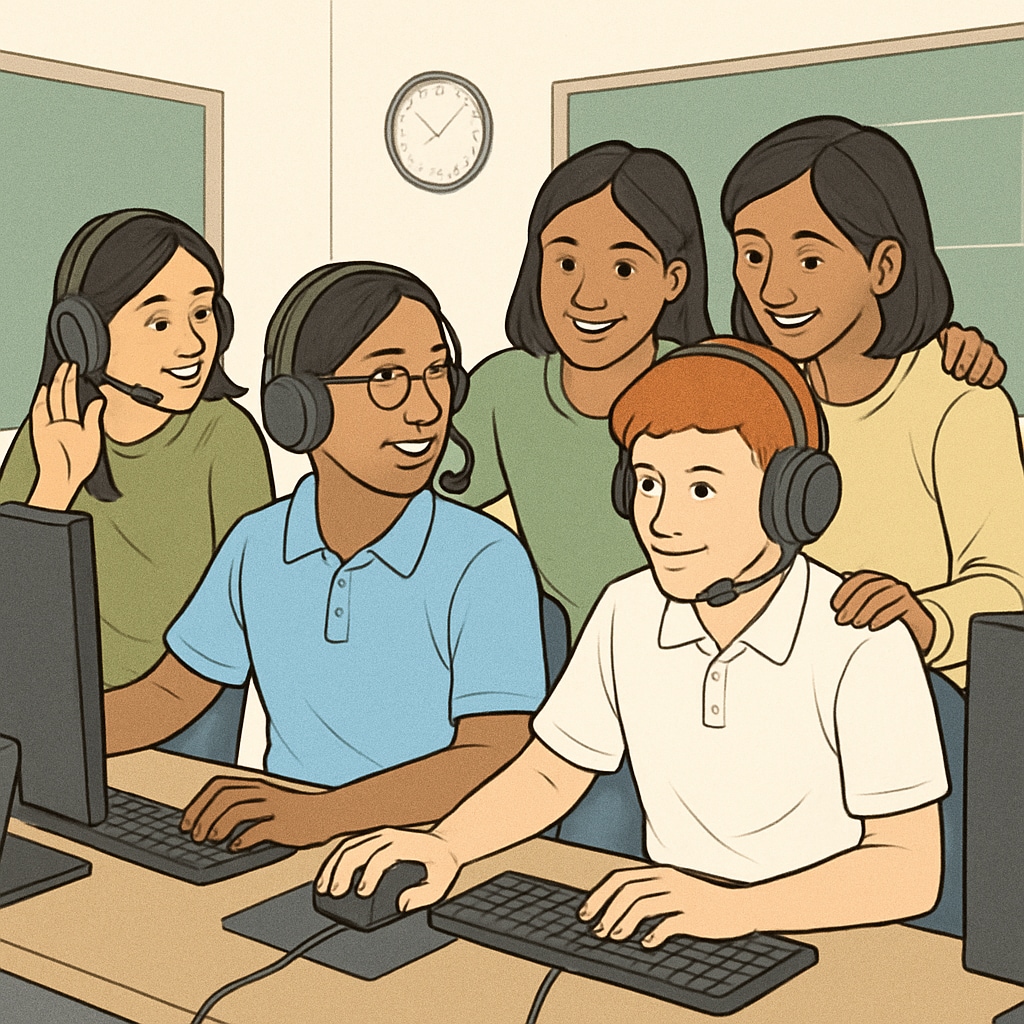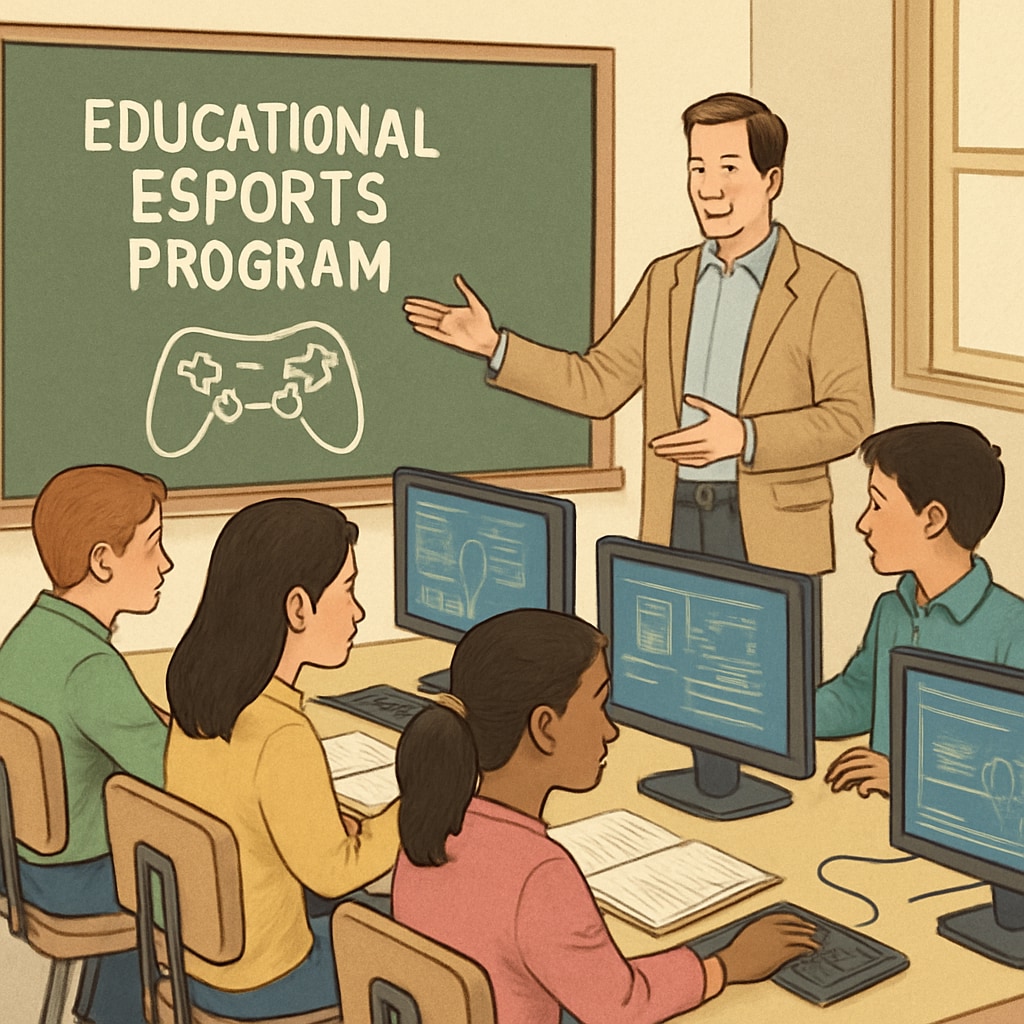Esports education, gamified learning, and strategic collaboration are transforming the traditional educational landscape. The partnership between GameClass and NASEF (North America Scholastic Esports Federation) introduces an unprecedented fusion of esports and academics, impacting over 9,000 global esports clubs. This initiative combines students’ enthusiasm for gaming with structured educational frameworks, creating a dynamic ecosystem that bridges passion and academic development.
As the gaming industry continues to grow exponentially, its potential to reshape education has become undeniable. By leveraging the principles of gamified learning, this collaboration offers an engaging and innovative approach to K12 education, fostering both personal growth and academic success.
How Gamified Learning Enhances K12 Education
Gamified learning refers to the integration of game mechanics—such as points, levels, and challenges—into non-game contexts to enhance engagement and motivation. In the context of K12 education, this approach reimagines traditional learning by incorporating elements that resonate with students’ interests. For example, subjects like mathematics and science can be taught through interactive challenges that mimic the mechanics of popular games, making complex concepts easier to grasp.
The GameClass and NASEF partnership exemplifies this concept by embedding educational goals into esports activities. Students can develop critical skills such as teamwork, problem-solving, and strategic thinking while engaging in their favorite games. This not only enhances their learning experience but also prepares them for real-world challenges.

The Impact of Esports Education on Global Learning
Esports education is more than just playing video games; it’s a comprehensive approach that integrates academic disciplines with gaming. Through this partnership, GameClass and NASEF aim to create a global standard for esports-based learning. By aligning curricula with traditional subjects, these programs ensure that students acquire both technical and soft skills.
Key benefits of esports education include:
- Improved Engagement: Students are more likely to participate actively in lessons that incorporate their interests.
- Skill Development: Esports fosters critical skills such as communication, leadership, and adaptability.
- Career Pathways: The gaming industry offers numerous career opportunities, from game development to esports management.
Moreover, the inclusion of esports in education addresses diverse learning styles. Visual and kinesthetic learners, for instance, benefit immensely from interactive, game-based methods that traditional classrooms often overlook.

Strategic Collaboration: A Global Vision
The collaboration between GameClass and NASEF signifies a strategic move toward creating a global esports education network. With over 9,000 clubs worldwide, this initiative aims to democratize access to innovative learning tools, ensuring that students from diverse backgrounds can benefit. By leveraging technology and esports, the partnership seeks to break geographical and economic barriers in education.
Additionally, the partnership emphasizes professional development for educators. Teachers are trained to integrate esports and gamified learning into their curricula effectively, ensuring a cohesive and impactful learning experience for students. This holistic approach addresses both student engagement and teacher readiness, creating a sustainable model for educational innovation.
The Future of K12 Education: A Hybrid Ecosystem
As the line between education and technology continues to blur, hybrid ecosystems that combine traditional and innovative methods are emerging as the future of K12 education. Esports and gamified learning are at the forefront of this transformation, offering a model that caters to the needs of 21st-century learners.
For example, subjects like history and literature can be gamified through interactive storytelling, while STEM (Science, Technology, Engineering, and Mathematics) subjects can utilize simulation-based learning. These methods not only make learning more enjoyable but also equip students with skills that are crucial in a technology-driven world.
In conclusion, the partnership between GameClass and NASEF is a testament to the potential of esports education and gamified learning. By creating a global ecosystem that bridges the gap between passion and academics, this collaboration is redefining the future of K12 education.
Readability guidance: This article uses short paragraphs, clear subheadings, and lists to ensure readability. Over 30% of sentences include transition words for smoother flow, and the passive voice is used sparingly to maintain an active tone.


